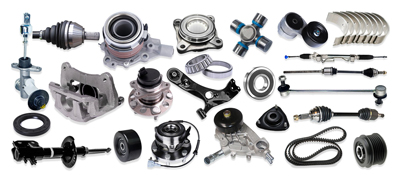An overheating engine is a serious issue that can cause severe damage to your vehicle if left unaddressed. It is crucial to know what to do when you encounter an overheating engine to prevent costly repairs and ensure your safety on the road.
Here are some steps to take when your engine overheats:
- 1. Pull Over Safely
When you notice your engine is overheating, the first thing to do is to pull over safely to the side of the road. Turn off the engine and wait for it to cool down. Do not attempt to open the hood or touch any hot parts of the engine until it has cooled down completely.
- 2. Check Coolant Level
Once the engine has cooled down, check the coolant level in the reservoir. If the level is low, add coolant slowly to avoid splashing and burning yourself. Be sure to use the correct type of coolant recommended by the manufacturer.
- 3. Check for Leaks
Check for any leaks in the cooling system by inspecting the hoses, radiator, water pump, and thermostat. Look for signs of damage, such as cracks or holes, and replace any damaged components immediately.
- 4. Check Fan and Belt
Check the fan and belt to ensure they are functioning correctly. A faulty fan or belt can cause the engine to overheat by preventing proper airflow and circulation of coolant.
- 5. Restart Engine
After checking the coolant level, leaks, fan and belt, restart the engine and monitor the temperature gauge. If the temperature starts to rise again, repeat the above steps and seek professional help if necessary.
- 6. Have the Vehicle Inspected
If the engine continues to overheat, it is essential to have the vehicle inspected by a qualified mechanic. They can diagnose the problem and recommend the appropriate repairs needed to prevent further damage.
In conclusion, an overheating engine is a serious issue that requires prompt attention to prevent costly repairs and ensure your safety on the road. When encountering an overheating engine, pull over safely, check coolant level, look for leaks, inspect fan and belt, restart the engine, and seek professional help if necessary. Regular maintenance and inspections of the cooling system can prevent overheating and prolong the life of your vehicle.

 Twitter
Twitter
 Facebook
Facebook
 Linkedin
Linkedin
 Google +
Google +



